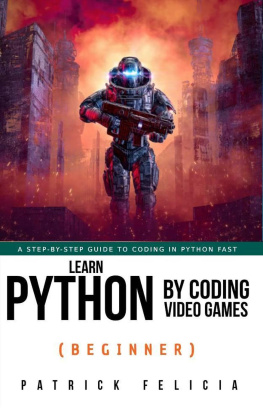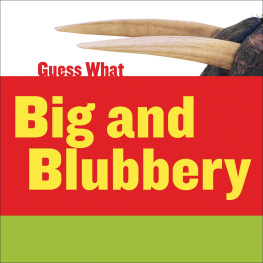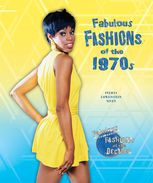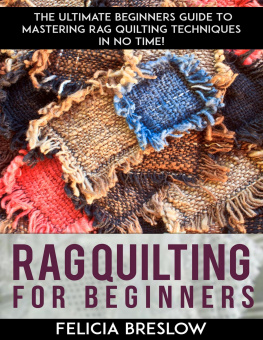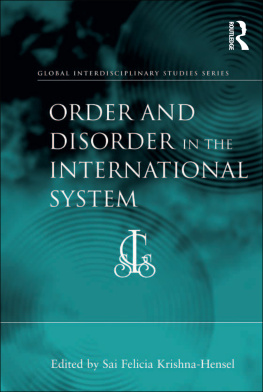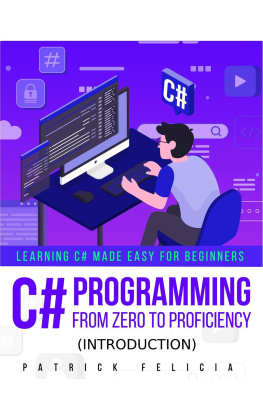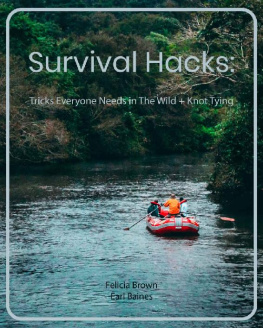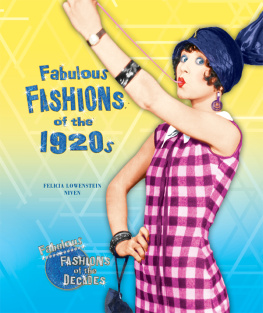The Sky Isnt Visible from Here
by Felicia C. Sullivan

Algonquin Books of Chapel Hill
For Fergus
Prologue
IN THE SPRING OF 1997, a few weeks before my college graduation, my mother disappeared. Over the years, I had grown used to her leaving: a four-day cocaine binge; a wedding at City Hall to which I was not invited; the month she locked herself behind her bedroom door and emerged only to buy cigarettes. Id spent the greater part of my life feeling abandoned by my mother. Yet shed always returnblazing into the kitchen to cook up a holiday feast for ten when the table was set for only three or creeping past me at dawn, red-eyed and sullen, back from her drug dealer on Brooklyns Ninth Avenue.
On the morning of my graduation, though, dressed in a black gown, I walked up the promenade to receive my diploma, scanning the audience. My mothers face didnt appear among the proud, applauding parents. I knew then that Id never see her again. Her deserting me for yet another man (this one had tried to strangle her) marked her death for me. This time I cut her out of my life: I collected photographs, birthday cardsanything that would remind me of herand sealed them in a box along with a painful past to which I swore Id never return.
I had been in perpetual chrysalis for most of my life, but during college Id become an expert at transformation. I turned into a walking J.Crew catalog: preened, preppy, and audaciously New England. Like a barnacle, I clung desperately to my affluent Waspy friends, most of them blonds who owned platinum Rolex watches that cost more than used cars. Unbeknownst to them, they were my teachers on all matters of etiquette and style. I mimicked their expressions and copied their wardrobes. I hoarded books on place settings, practicing a proper table on top of my bed. And I never let down my hair. Literally. I have curly hairthe kinky, unruly kindbut I wore it ironed straight. The difference between wearing my hair straight or curly was the difference between life and death.
Now, I took the invention of myself a step further. When I began graduate school, I resolved to no longer be the child who took her mother to the hospital when her body convulsed from all the drugs. Instead I became a young woman who hailed from Long Island with a mother whod quietly passed away and a father who bred horses. This was all partially true. When I was a teenager my mother and I moved out of Brooklyn and into a four-room apartment on the South Shore of Long Island that we shared with Gus, my mothers fianc, who to this day I call my father. Every day at dawn, Gus drove out to Brookville to break yearlings and raise thoroughbred horses.
As a graduate student I became guarded about my past and my previous life, never mentioning the summer my mother and I survived on bags of potatoes and butter, or the ever burgeoning piles of empty Bacardi bottles, or the images of my mother, in a violent rage, ripping my writing to shreds. I didnt tell anyone that Jade, the woman my mother left me with when I was little who drank countless tumblers of vodka lemonade, was out cold when her teenage son came home one night, boom box on his shoulder, wanting to know what I looked like on the inside. My mother bludgeoned Jades son with Jades own skillet, broke his nose in two places, and cracked his jaw. Afterward, my mother insisted this never happened. Like everything elsea broken arm, my mother sleeping with men for money and drugs while I lay on the floor next to her bedall these memories, she was adamant, were my imagination.
These memories were now locked in a room to which I permitted no entry.
Sometimes, though, my past would come back to me in flashes, horrific storms, and I would shudder and say aloud, That person, that life, is not you. And, of course, there were other ways to forget: Id had my first blackout from alcohol at seventeen and, at twenty-four, my first from cocaine.
Still, I was proud of my creation: a college graduate, a masters candidate, a woman who worked in the most prestigious investment banks, read Sartre and Woolf, and owned a collection of expensive handbags and shoes. Eventually, however, the weight of these two livesone perfectly assembled on paper and another lived in incessant fear of being found outgrew too difficult to bear. There were near heart attacks in taxicabs, nosebleeds at work, a leave of absence from graduate school, a strained relationship with Gus, and friends who avoided my phone calls.
And then there was my motherwhom I never truly mournedghosting my waking and sleeping hours. I began to wonder if Id been trying to drink and snort my way back to her, a woman who loved her alcohol and drugs too.
THESE ARE THE THINGS I know about my mother: she was a junkie, a liar, a thief, a woman who made the very best golden-fried chicken cutlets, who tried to protect me from the world and all the people in it, a mother who didnt know how to be a mother. And she is also the woman who broke my heart. The last time we spoke I remember telling her, You make it impossible for me to love you. I thought then that loving my mother was killing me, but now I know I was killing me.
I decided it was time to come clean. I told my friends that my mother did not quietly pass away. There was no funeral, no spadefuls of earth. I told them that I hadnt seen my mother in a decade. I knew nothing of her nowwhere she lived, if she lived at all. With trepidation, my friends asked, So your mother didnt die?
Define die, I said. Its possible that shes dead, but I dont know.
My friends were surprised to learn that Gus, the man theyd come to know as my father, wasnt my birth father. They asked after my real father. When I was young, my aunt told me that my mother banished him: since he had left her, hurt her, there was no way he would know his daughter. Thats what happens, my mother had said, when you break my fucking heart. My freshman year of college, my mother, angry, told me that I had been the product of a rape, but another time she claimed that my father was Peruvian, and then there was that time she said he was American Indian and they had planned to get married at an Indian reservation out West. With my mother you never knew what to believe.
Shamefully, I admitted to my friends that Id done coke in their houses, in their bathrooms, off their bedroom dressers, that Id stolen pills out of bathroom cabinets, wine from their kitchens. They wondered, How did we not know? But these are the same people who thought my hair was straight and laughed when I insisted that I was really shy, scared of new people, that podiums frighten me, that I used to stutter. It was exhausting working a room, smiling those happy-meal smiles. They found this hard to believe, Look at that reading series you curated, that journal you publish, all us friends youve acquired. You are the human telephone book. You, they insisted, are the opposite of shy. But it was just that Id always thought it was my job to make sure everyone else was happy.
ITS BEEN FIVE YEARS since my last line of cocaine. Ive kept friends and made many new ones since then, friends of many hues: red, black, brown, blond (to be fair). And my new best friend, well, everything about her is loud, from her gum chewing to her infectious laugh, but I love her in ways I couldnt have ever imagined. Last year we took a trip to see her family in Taiwan, and I remember emerging from the showers at a public pool, my curly, coarse hair dripping wet. And it took everything in me not to cry when she came up behind me, touched my hair, and said,


